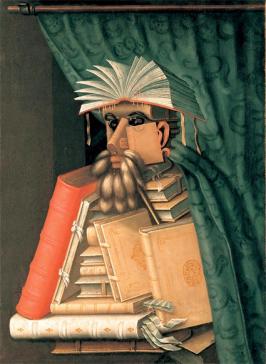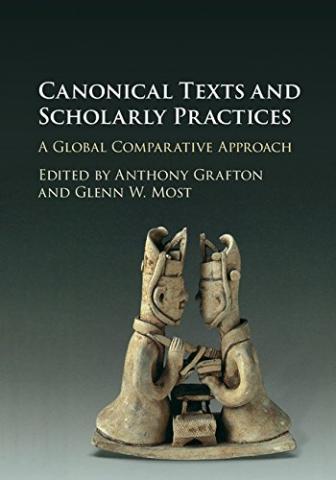The creation of canons of written texts—religious, literary, philosophical, scientific—is a feature of numerous literate cultures from ancient times to the present. Such canons may crystallize cultural identities, confessional orthodoxies, school curricula, standards of taste, and refinement, and/or the qualifications of ruling elites. They also give rise to learned textual practices, some of them quite technical, to stabilize, reproduce, store, access, format, correct, and interpret the canon. In ancient Chinese and ancient Greek, in medieval Arabic and medieval Latin, in Sanskrit and in Persian, in the modern European vernaculars since the Renaissance (to name only these), highly trained scholars have developed, cultivated, and transmitted the textual practices of their respective canons. These practices include source criticism, emendation, reconstruction, etymology, script, mis-en-page, indexing, specialized reading techniques, detection of forgeries, and much else. The virtuosi of textual practices have often been the leading intellectuals of their cultures, providing models and materials for other branches of learning. Shadowing and helping to shape the traditions generated by the canonical texts themselves are the learned traditions of the textual practices that serve the canon: the sciences of the text.
This Working Group aimed to study the textual practices of the guardians of the canons across multiple cultures and centuries. It examined historically and comparatively the scholarly practices associated with canonical texts especially in the following linguistic traditions: ancient Greek; Latin; Hebrew; Arabic; the languages of the Indian subcontinent; Chinese. Among the scholarly practices focused upon were textual establishment and criticism; exegesis and commentary; lexicography; methods of excerpting, storage, and retrieval of texts; libraries and their uses; composition of poems and essays; formal and informal examinations. Building on recent work on the origins and cultural significance of canons, and following the example of historians of science and scholarship who have examined scientific practices such as collecting, measuring, and note-taking, the project investigated the distinctive practices that make texts objects of systematic inquiry.
As in the case of scientific practices such as conducting a chemical assay or a statistical survey, textual practices require rigorous training and impose stringent standards, often in a competitive situation that pits scholar against scholar, school against school. Examination systems, as in imperial China, reinforce both canon and practices. Cultivation and competition may promote self-conscious reflection on standards of evidence and proof and even on the nature of the knowledge produced by textual practices. In some historical contexts, such as early modern Europe, both practices and reflections become the template for what it means to be a science—i.e., to be in the possession of reliable techniques with which to acquire and test systematic knowledge. In other cases, the sustained application of textual practices to the canons that originally spawned them may lead to the dethroning of once-canonical texts. It is probable that different canonical traditions promote different textual practices. It is, however, also probable that in a number of cases, the guardians of some canons borrow knowledge and practices from those of others.
Practices were the focus of attention in this project, but practices cannot be understood in a vacuum. Questions about what institutions (courts, universities, monasteries, bureaucracies) support and shape them; who becomes a textual practitioner and how; if and how material objects (e.g., archeological artifacts) are integrated with texts as sources; where and in what form texts are archived were also within the ambit of the project.
The project organizers recruited a Working Group of around a dozen scholars, both junior and senior, with specialties encompassing a range of canonical traditions. Approximately six senior and six junior scholars studied together in Berlin from 6 July 2012 to 17 August 2012, each with a preliminary version of a chapter on one aspect of this general topic for a collective publication, to be presented to and discussed by the other members of the group. All participants spent those six weeks working together to turn these chapters into a more unified book.


